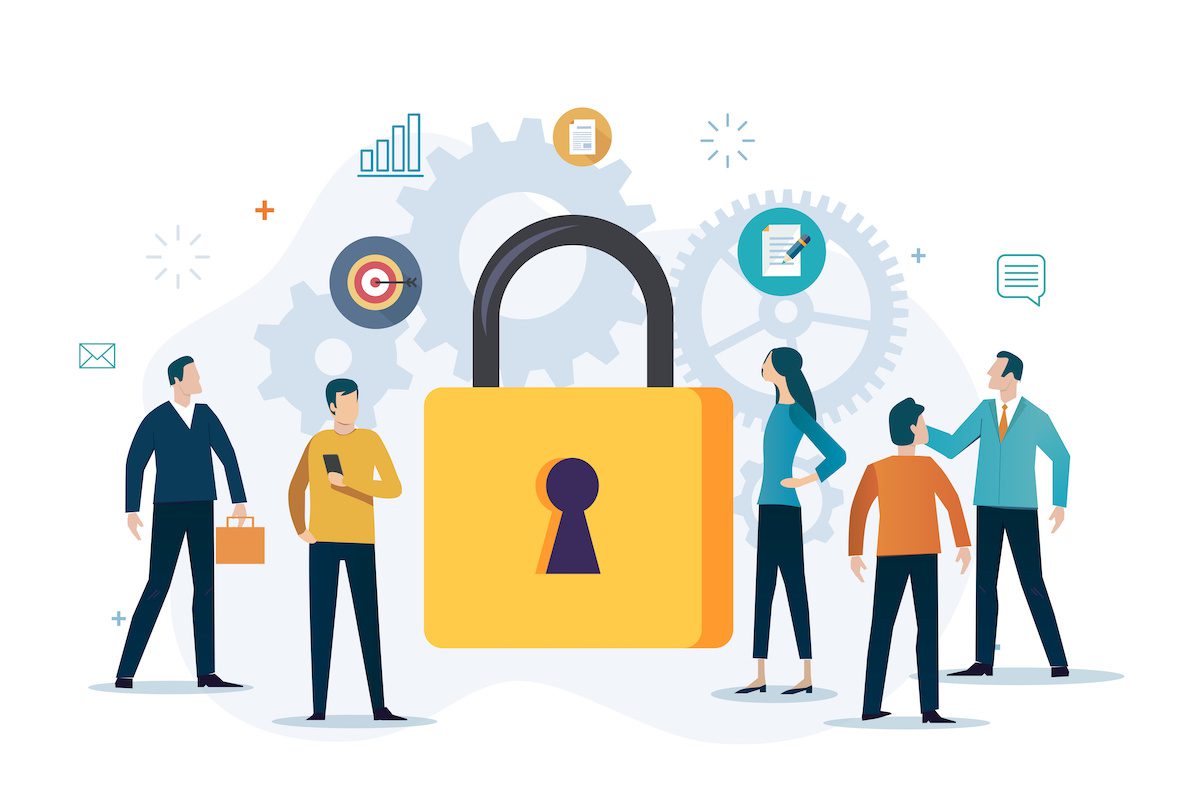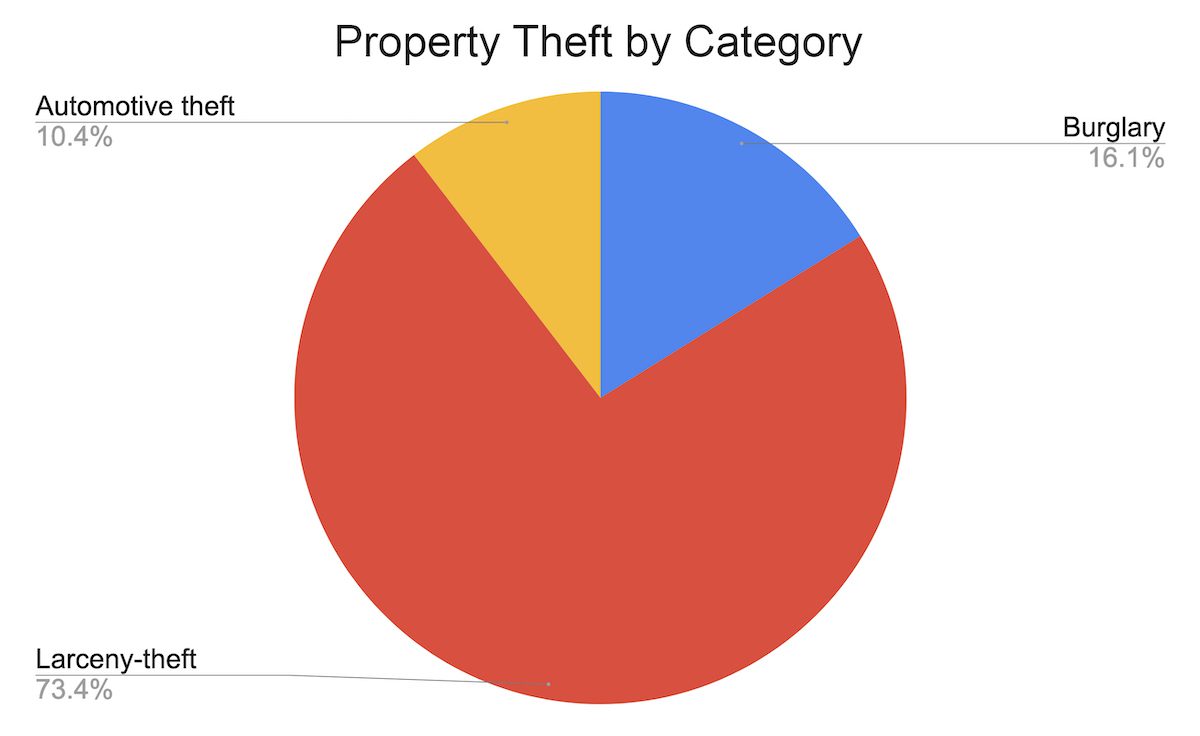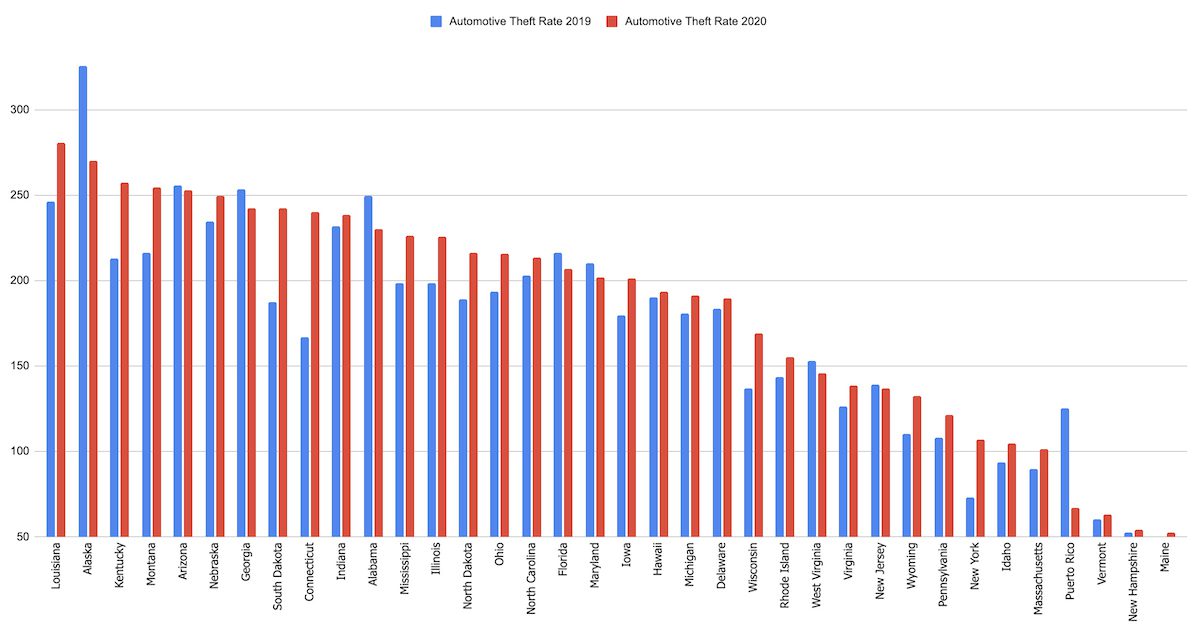How Better Security Can Lower Insurance Premiums?

Insurance Premiums And Theft
Theft can occur at any moment. It’s easy to live in constant fear of this sort of disaster coming your way and destroying your life, but there are ways to increase your security and help ease your worries.
On top of that, instituting proper security measures can lower your insurance premiums and reduce the risk of theft. Really! Taking the proper measures to protect your vehicle, home, and business pays off.
The Rise Of Property Theft
Though burglary rates are reported to be falling annually, most of those claims are based on the latest FBI statistics, which are from 2019. Still, there were estimated to be over 1 million instances of burglary in 2019, which only accounted for 16% of overall property crimes.

Data Source: FBI 2019
This already high number, though it may be part of a decreasing trend, fails to account for the wave of property crime that skyrocketed during the last few years. Both civil unrest and the economic downturn have created a hotbed of theft in major cities.
Many property crimes of the last few years will not be recorded in future statistics as larger states took steps to decriminalize certain thefts, resulting in businesses not bothering to file police reports. I speak from first-hand knowledge of this as a security professional.
Most reporting has yet to catch up with the alarming rise of thefts that the National Insurance Crime Bureau’s (NICB) own David Glawe outlined in his March 1st, 2022, testimony to the US senate. There, the president and CEO of the NICB shared that car thefts have increased by almost 17% from 2019.

Data Source: NICB 2020
In certain states, such as Wisconsin and Colorado, the NICB found that vehicle theft rose by 74% and 79%, respectively, between 2022 and 2019. And California, in particular, experienced approximately 40,000 more car thefts in 2021 than it did in 2019.
The rise in nonviolent instances of property theft is nothing compared to what Glawe testified to in regards to vehicle theft with the use of violence (referred to as carjacking). The cities of New York; Philadelphia; Chicago; and Washington, D.C. all experienced an increased rate of carjackings that exceeded 2019’s numbers by over 200%.
Make no mistake. Whether the figures are documented precisely or remain obscured, there is a growing risk of property theft. And for those reasons, it is important to know the best ways to protect your property while also lowering insurance premiums.
Anti-Theft Devices And Automobiles
You can get premium discounts for anti-theft devices if you report the existence of those devices on your vehicle to your insurance provider. Having these anti-theft devices is, therefore, very important. You have a few options when it comes to these devices, as they come in multiple varieties.
Overall, getting one or more of these security measures installed significantly helps with your car or even commercial truck insurance.
Alarms
Car alarms are fairly standard these days, but not everyone has them. When a thief tries to break into a car, the alarm draws attention to them, making their theft attempt riskier and potentially sending them running. Make sure to get a car alarm installed if you don’t have one already.
For additional security, you can invest in third-party car alarms that send an alert to your phone. The more personalized alert of a potential theft in progress decreases the chances of alarm fatigue. Alarm fatigue is the phenomenon where the sound of an alarm is treated as an annoyance to be ignored rather than a sign to take action.
GPS
The existence of a GPS system makes your car much easier to track and, therefore, recoverable. They are great for finding where you’re going, sure, but they’re also pretty effective methods of security. The GPS unit must be installed in the car for this to fully work.
If you do not have a GPS built into your dashboard, you can still place geolocation devices in your vehicle. Apple Air Tags, or similarly small devices, can be hidden on a vehicle so it can be tracked in the event of a theft. They can even be placed on valuables within the car.
Steering Wheel And Tire Locks
These locks do what you’d think they do – they prevent the steering wheel or tires from being moved until they’re unlocked with a key. They can be bypassed by crafty thieves, but the locks can significantly slow them down. And for the most part, thieves will disregard a vehicle with additional security for an easier target.
Though steering wheel and tire locks are very effective at preventing even the craftiest of thieves from wanting to go through the trouble of actually stealing your car. They do not dissuade smash and grab attempts to steal property within the vehicle.
Dash Cams And Baby Monitors
Cameras are fairly obvious theft prevention measures. If you’re monitoring the inside of your car – especially if the data can be accessed remotely – thieves can be potentially identified, increasing the likelihood of your car being recovered.
Your main consideration will be whether or not to make the camera obvious. An obvious camera may deter certain criminals worried about their crime being documented. But some criminals break into cars specifically to steal electronics such as dash cams.
Kill Switches
Kill switches are hidden switches in your car that prevent them from being started while they are in the “off” position. They are designed to be inconspicuous and will usually leave a hurried thief thinking your car has something wrong with it, give up, and move on to the next car.
Kill switches come in a variety of complexities. The simplest kill switch is a single switch with an on and off orientation. Other kill switches provide more security by requiring a combination of orientations to allow the engine to turn over, so the discovery of the switch is not enough to undermine it.
Motorcycle Theft Prevention
But what about motorcycles? How many of these theft prevention methods even apply to these vehicles?
You can still get steering and wheel locks, kill switches, GPS, and alarms, as well as motorcycle-specific anti-theft devices. There are still a few ways to lower your chances of motorcycle theft that do not apply to car or truck theft.
Bike Locks
The standard bike lock is, of course, a great preventative measure against theft. Make sure you park your bike somewhere inconspicuous and ensure your lock doesn’t touch the ground. If it does, it’ll be easier to break.
Disc locks are good for security. These go on your bike’s tires and prevent them from moving while you’re away. They’re difficult to break and hard for thieves to remove.
Heavy Chain
Chain up your motorcycle with something heavy. That way, a thief can’t just come along and pick it up with their buddies.
A lot of motorcycle theft is done by teams of theives simply picking up bikes and walking off with them or loading them into trucks. You need to be on alert for this kind of theft if you don’t want your motorcycle to be stolen.
Bike Photo/Mark
It’s always a good idea to have a photo and some kind of unique mark on your bike. This makes it much easier to recover and proves to both the police and insurance that the bike belongs to you.
The mark can be a personalized sticker or even your initials written somewhere. Anything that makes the bike easily identifiable does wonders for the security of that bike, and it doesn’t have to look ugly.
Lock Forks/Ignition Locks
Many bikes come with lock forks, and almost all have ignition locks. If your bike doesn’t already have one, or if yours is faulty, consider getting new ones. While they are beatable, they go just a little bit further in terms of security.
One thing that makes these security measures effective is that even when a thief knows how to bypass them, it slows them down. That makes you more likely to catch them and their job a bit riskier.
Home Security
If you park your bike at home, having some degree of home security, in turn, helps your bike security, making it less likely to be stolen.
Most people don’t think about home security in terms of vehicle protection, but the truth is, parking in a safe space can significantly reduce your risk of theft. You can’t control where you park when you’re out and about, but making your own home safe is one area of control that you do have.
Anti-Theft Measures and Buildings
Your home, commercial property, or even property under construction can benefit from lower premiums if your risk of theft is lower. But what factors go into this lowering risk of theft?
The truth is that high theft locations increase premiums. You can’t have complete control over where this building is located, so if you’re in a high theft area, you need to have your security under control, both to lower the significant chance of theft and to lower your premiums.
When it comes to your home insurance or commercial crime insurance, much like vehicle insurance, you can install a wide variety of anti-theft devices to lower your insurance premiums. And, like vehicle insurance, these devices vary wildly, and you have a lot of options to choose from.
On top of that, take pictures of your stuff, so you have an updated inventory for the insurance policy.
Anti-Theft Measures and Homes
You can receive discounts for homeowners insurance if you install certain security devices. But receiving these discounts is less about the use of a single device and more to do with the integration of these devices into a fully monitored home security system.
Deadbolts
Your basic level of protection is the locks you use on all exterior doors, which should include at least one deadbolt per entrance. A deadbolt is a lock that does not use a spring-loaded mechanism, which you find on most door knobs and handles.
Without a spring on the latch bolt, a deadbolt cannot be shimmed open with a credit card or otherwise easily bypassed. But deadbolts are still just as vulnerable to picking and destructive entry as a door knob unless they make use of certain high-security features such as security pins and steel interest.
Monitored Alarms
When it comes to home alarms, you do not just want a loud sound that disturbs your neighbors. Alarms should be monitored around the clock by a professional security company. Without this additional level of protection, there is not much security being offered by an alarm.
A car alarm will also flash lights to indicate to passersby which car is being attacked. In homes, this is less obvious, which limits the likelihood of bystander intervention. You want to have a service that can call the police with all relevant information in real-time.
Security Camera
Whether you have one or several security cameras, it is more important that the footage is being monitored. Documenting a crime can be important for the recovery of stolen goods and for prosecuting thieves. But these perks are not providing security in terms of crime prevention.
For meaningful security, you need someone ready to respond to threats in real-time. This is why it is so important to integrate a security camera with a more involved home security system. A monitored alarm system is bolstered by video surveillance.
Smart Locks
A major benefit of smart locks is that they can integrate with the other elements of your home security system. With live updates and WiFi controls, you can check to see that all doors are locked and even be alerted when they are opened.
Even if the locks and alarm are defeated surreptitiously or covertly, you can still be alerted to the lock being opened. In cases where you know all authorized visitors should not be entering the home, this will be enough to signal a crime is most likely in progress or the home is under threat.
Closing Recommendations
Although your insurance rates may be reduced when you invest in better security, this is not the ultimate goal. Whether you are considering physical security or insurance, you are looking to be better protected and have peace of mind. So make sure you are properly insured and utilizing the most effective security devices for your needs.
![]() Ralph Goodman is the resident lock and security expert at United Locksmith. His writing has been featured in many well-known publications that share the passion he has for safety and security.
Ralph Goodman is the resident lock and security expert at United Locksmith. His writing has been featured in many well-known publications that share the passion he has for safety and security.



